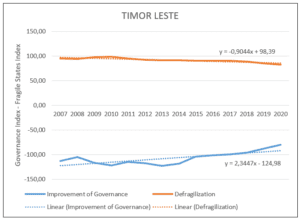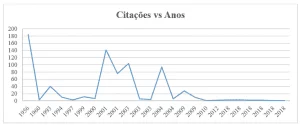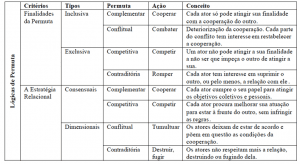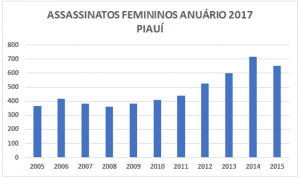ORIGINAL ARTICLE
SILVA, Juliana Cândido da [1], SANTOS, Henrique Mendes dos [2]
SILVA, Juliana Cândido da. SANTOS, Henrique Mendes dos. Social Service and Mental Health: Performance of the Social Worker in the multidisciplinary team. Revista Científica Multidisciplinar Núcleo do Conhecimento. 04 year, Ed. 10, Vol. 01, pp. 106-120. October 2019. ISSN: 2448-0959, Access link: https://www.nucleodoconhecimento.com.br/social-sciences/social-service
SUMMARY
This study aims to reflect, theoretically, on the role of the social worker inserted in a multidisciplinary team within mental health, emphasizing interdisciplinary practice within the new model of mental health care, the study covers the historical process of the Psychiatric Reform and the insertion of Social Work in the field of mental health, also exploring the context and importance of intersectoriality , integrality and interdisciplinarity in this field. The methodology used was bibliographic and descriptive research based on the performance of the social worker within a psychiatric unit. It also highlights the fundamental role of professional action in the recovery process of patients in order to optimize the social reintegration of these individuals.
Keywords: Mental health, interdisciplinarity, social work.
INTRODUCTION
According to the Regional Conference on The Reform of Mental Health Services (2005), the Psychiatric Reform, in Brazil, evoked significant changes, especially in the model of mental health care modified the model of mental health care bringing advances in the treatment of people with mental disorders, presenting, therefore, several demands aimed at Social Work. However, the theme is quite complex, since it bears marks of the old psychiatric model as well as the prejudice rooted in society towards people with mental disorders. The Center for Integral Mental Health Care (PAI) is a private psychiatric unit located in the São Francisco Hospital in Providence of God, located in the northern part of the city of Rio de Janeiro, has the function of offering a 24-hour emergency care, with short-term hospitalizations for patients in crisis, thus contributing to the reintegration of the patient into society from a full follow-up , intersectoral and humanized.
During hospitalization, patients and their families are accompanied by the multidisciplinary team of the PAI composed of Psychiatrists, Psychologists, Social Worker, Occupational Therapists, Nutritionist, Physical Educator and General Clinic. The Psychiatric Reform movement aims to highlight the importance of the insertion of the social worker in mental health services, and thus it is essential to discuss the performance of the category in this workspace, especially in the intersectoral and interdisciplinary scope, the reality of patients who are cared for in the I.A. requires a critical, competent and humanized professional intervention, which can only be achieved through an adequate analysis of reality , the objective of this work is to present reflections on the intervention of the social worker in the interdisciplinary space within mental health.
The methodology advocated for the execution of the study was bibliographic and descriptive research. In this context, the motivations that led to the construction of this article are closely linked to the experience of activities developed in the area in question.
DEVELOPMENT
1. MENTAL HEALTH AND PSYCHIATRIC REFORM
The World Health Organization (WHO) alludes that there is no presence of definitions from official bodies in the face of mental health. This is mainly due to cultural and subjective influences. In this sense, Staub and Hoch (2013) understand, in their study, that mental health should be seen as a state of emotional and also psychological well-being. Thus, the subject must be able to make use of different emotional and cognitive skills as well as must perform various social functions, and, still, must respond to the multiple requests that the daily routine asks for. For Staub and Hoch (2013) and Lima and Neto (2005), the beginning of the psychiatric reform process in the country originated from the “Sanitary Movement” in the 1970s.
Thus, it acted in favor of changing the models of care and management focused on health, the defense of collective health and equity in the provision of services. This reform can be understood as a complex political and social process, since it took shape from actors, institutions and forces of multiple origins. Staub and Hoch (2013) and Lima and Neto (2005) emphasize that due to this character, it focused on all spheres: municipal, state and federal, as well as in universities, in the health services market, in professional councils, in associations of people with mental disorders, in diverse social movements and in domains marked by social imaginary and public opinion. The Regional Conference on Reform of Mental Health Services (2005) was very important in this context.
It, in turn, comprises a set that has taken shape from transformations of practices, knowledge and values. Thus, it argues that it is in daily life, that is, in the life of institutions, services and interpersonal relationships that the Psychiatric Reform must act. Thus, it was a process marked by impasses, tensions, conflicts and different interests. In the Brazilian context, the reform took its opportunity in 1978. It was a social movement in search of the rights of psychiatric patients. The fight became known as the “Mental Health Workers’ Movement” (STAUB; HOCH, 2013; LIMA; NETO, 2003; AMARANTE; NUNES, 2018). It was formed by workers of the Sanitary Movement, relatives of patients, trade unionists and people with a history of psychiatric hospitalizations.
The literature points out that from this movement as well as through various struggles, several cases of violence were reported in the asylums, and also the hospital-centered model aimed at the care of people with mental disorders (STAUB) was strongly criticized; HOCH, 2013; LIMA; NETO, 2003; AMARANTE; NUNES, 2018). It was in this context that the first proposals and suggestions for actions to be implemented to reorient the care to these individuals with mental disorders emerged. Based on these ideals, in 1987, the 2nd edition of the National Congress of mtsm, held in Bauru, in the state of São Paulo, adopted the motto “for a society without asylums”.
The studies by Carvalho (2010) and Souza (2015) indicate that, still in 1987, the 1st edition of the National Conference on Mental Health was held in Rio de Janeiro. In this period, the first CAPS in the country emerged. Its headquarters were built in São Paulo in 1987. In 1989, there was a process of intervention by the Municipal Secretariat of Santos (São Paulo) at the Anchieta Health House. The main motivation for the intervention was that this hospital was a place of maltreatment of patients and there were also deaths. Thus, in Santos, psychosocial care centers (NAPS) were implemented. These offer 24-hour care to patients. Santos’ experience then became a milestone in the reform process in Brazilian psychiatry.
Thus, in 1989, a bill proposed by Congressman Paulo Delgado, pt/mg, was instituted. This one was admitted to the National Congress. The Law proposed the regulation of the rights of people with mental disorders as well as advocates the progressive extinction of asylums in Brazil. The studies by Carvalho (2010) and Souza (2015) emphasize that this was the beginning of the struggles of the Psychiatric Reform Movement in the legislative and normative spheres. In 1992, social movements inspired by this bill were able to pass, in several Brazilian states, the first laws that advocated the progressive replacement of psychiatric beds by an integrated mental health care network (MELGAÇO, 2013; CARVALHO, 2010; FILHO et al, 2015; Alvarez; MARTINS, 2012).
It was also during this period that the Ministry of Health’s policy on mental health began to follow the guidelines of the Psychiatric Reform (MELGAÇO, 2013; CARVALHO, 2010; FILHO et al, 2015; Alvarez; MARTINS, 2012). In this way, she went on to gain better defined guidelines. The 1990s are marked by the country’s commitment to the Caracas Declaration, promoted in the 2nd edition of the National Mental Health Conference. The first federal rules regulating the implementation of services focused on daily care based on the experience of the first CAPS, NAPS and Day Hospitals are now in force in the country. The first rules for supervision and classification of psychiatric hospitals also emerged.
In 2001, after 12 years of procedure in the National Congress, the Law proposed by Paulo Delgada was sanctioned. However, the approval was a substitute for the original bill, since it brought important changes in its normative text (FONTE, 2012; DIMENSTEIN et al, 2009; SOUZA, 2015; Alvarez; MARTINS, 2012; GONZALEZ, 2015; OLIVEIRA, 2013). Thus, the Federal Law of 2016 redirected mental health care. There was, therefore, a certain privilege in offering treatment in community-based services. Thus, it provides for the protection of the rights of people with mental disorders, but does not establish clear mechanisms in the face of the progressive extinction of asylums. There was also the deinstitutionalization of people with long-term hospitalization.
This process was driven by the creation of the “Back home program”. A human resources policy was also established for the Psychiatric Reform to be built (FONTE, 2012; DIMENSTEIN et al, 2009; SOUZA, 2015; Alvarez; MARTINS, 2012; GONZALEZ, 2015; OLIVEIRA, 2013). Policies on alcohol and other drugs were then outlined. To this end, the strategy for harm reduction was incorporated. In 2004, the first Brazilian Congress of Psychosocial Care Centers was held in São Paulo. 2,000 caps workers and users met. Thus, with the implementation as well as with the financing of Therapeutic Residential Services (RTS) emerged to the detriment of the deinstitutionalization process and as important components for mental health policies.
They emerged, above all, to overcome the care model centered in the psychiatric hospital. In this sense, the RTS, the therapeutic residences or, simply, the houses, are houses located in the urban space that aim to provide assistance to those with mental disorders and, thus, need help frequently, whether they come from psychiatric hospitals or not. In summary, with the approval of Law No. 10,216/01, ordinance No. 336/MG was adopted on February 19, 2002. This, in turn, regulated the services for the replacement of the hospital-centered model. With these changes in the form of treatment, the mental patient/patient, as it was called, is now considered as a user subject of rights, and thus worthy of treatment.
It is possible to conclude this chapter by stating that we sought new alternatives aimed at mental health care (FONTE, 2012; DIMENSTEIN et al, 2009; SOUZA, 2015; Alvarez; MARTINS, 2012; GONZALEZ, 2015; OLIVEIRA, 2013) since the creation of CAPS, NAPS, Day Hospitals and Therapeutic Residences. Thus, the new concept of mental health began to prioritize the subject and no longer the disease itself. Thus, this subject began to be offered a more humane and quality treatment. Appropriate devices and spaces directed to its treatment were created. It is therefore needed to adhere to intersectoral actions as well as to various social policies in order to enable an interdisciplinary intervention that aims at integrality when attending to the subject with mental disorders.
2. INTERSECTORIALITY, INTEGRALITY AND INTERDISCIPLINARITY
With the enactment of Laws 8,080 and 8,142, both of 1997, the Unified Health System (SUS) was implemented in Brazil. This, in turn, is based on Art. 198 of the Federal Constitution of 1988 (BREDOW; DRAVANZ, 2010; SCHÜTZ, 2009; APPEL, 2017). The main guidelines of the SUS are about the universality and integrality of this in the service to users. It also advocates the decentralization of resources as well as regionalisation. It also aims to serve, in a unique way, each region. In this sense, the conception of health goes beyond the simpleton idea of “absence of disease”. Thus, health policy in Brazil is organized in an intersectoral way so that it is possible to face the various factors that manifest themselves in the process of illness through, above all, integrated actions.
Health has as determining and conditioning factors, among others, food, housing, basic sanitation, the environment, work, income, education, transportation, leisure and access to essential goods and services; the health levels of the population express the social and economic organization of the country (BRASIL, 1990).
According to the literature, the social, economic and cultural aspects of a nation have a direct impact on the health levels of a given population (CAMPOS; CASTRO, 2004; BREDOW; DRAVANZ, 2010; SCHÜTZ, 2009; APPEL, 2017). In this context, health can be defined as the result of the modes of social organization of production. The most diverse factors are then, to be applied. These, in turn, require the State to assume responsibility for the implementation of health policies integrated with the other social and economic policies demanded by the population. Thus, the State has a duty to ensure its effectiveness, as it is also up to it to ensure that the health sector promotes more dignified living conditions through, mainly, the full exercise of citizenship.
However, it is necessary to emphasize, with this study and according to the literature, that it is extremely important, the creation by the State of devices, apparatuses, tools, methodologies and the like for effective combat as well as for the eradication of factors that cause one or more people to get sick (CAMPOS; CASTRO, 2004; BREDOW; DRAVANZ, 2010; SCHÜTZ , 2009; APPEL, 2017). It is also necessary, in addition to the implementation of health policies integrated with the others, it is necessary to walk in search of the intersectoriality of health policies with other social demands. Thus, different mechanisms should be activated so that shared work is emphasized in the process of coping with social problems. Intersectoriality for Campos and Castro (2004, p. 74) is:
Nothing more than a process of shared construction, in which the various sectors involved are touched by knowledge, languages and ways of doing that are not usual to them, because they belong or are located at the core of the activity of their partners. Intersectoriality implies the existence of some degree of openness in each sector involved to dialogue, establishing bonds of co-responsibility and co-management for improving the quality of life of the population.
In this perspective, considering the citizen in a healthy way, that is, being sensitive to their individual and collective needs, collaborates with the execution of effective actions aimed at health promotion (CEZAR; MIOTO; SCHUTZ, 2008; DIAS, 2010; FIELDS; CASTRO, 2004; BREDOW; DRAVANZ, 2010; SCHÜTZ, 2009; APPEL, 2017). It should also be emphasized that the construction of partnerships with other sectors, that is, with the spheres of education, work, employment, housing, culture, safety, food is essential. Thus, health promotion depends, above all, on the satisfaction of various social needs that are manifested through policies and demands. These are no different in the health sector. Therefore, it is necessary to be involved with other categories in order for negative factors in the health/disease process to be solved.
In the field of mental health, comprehensive care is an ethical and political principle that implies the organization and implementation of care and provision of services in such a way that the user is fully attended (CEZAR; MIOTO; SCHUTZ, 2008; DIAS, 2010; FIELDS; CASTRO, 2004; BREDOW; DRAVANZ, 2010; SCHÜTZ, 2009; APPEL, 2017). It seeks, then, to overcome the fragmentation in the provision of care. For this it is necessary a broad understanding suffers the factors that cause the subject to get a sweet. In this sense, the National Health Promotion Policy argues that integrality should go beyond the articulation of strategies aimed at health production. There must therefore be broader communication so that the individual and collective needs of users are better understood.
It is necessary, however, to unlink a strict perspective that focuses only on illness as well as symptoms and adhere to a strand that is concerned with the study of the patient’s history, living conditions and health needs (CEZAR; MIOTO; SCHUTZ, 2008; DIAS, 2010; FIELDS; CASTRO, 2004; BREDOW; DRAVANZ, 2010; SCHÜTZ, 2009; APPEL, 2017). It must then be understood that integrality is not just a concept. It is a guideline that is adopted daily. This process can be achieved through interdisciplinarity. This, in turn, needs to focus on methods that emphasize the reconstruction of the social worker’s performance. Presenting objectives and strategies to make this service more efficient is essential. Teamwork is a powerful ally to achieve interdisciplinarity.
In order to achieve good results, teams need to be composed from professionals from different areas, and thus, their specificity must be respected as well as it is necessary to ensure the multidisciplinarity of their tendencies in order to exchange experiences (CEZAR; MIOTO; SCHUTZ, 2008; DIAS, 2010; FIELDS; CASTRO, 2004; BREDOW; DRAVANZ, 2010; SCHÜTZ, 2009; APPEL, 2017). In this perspective, the most recurrent challenges in the practice of social workers are mainly related to the implementation of social policies. These should, then, provide better access to institutional networks so that users feel supported in the most diverse spheres. In the field of Mental Health, it is to guarantee the realization of rights from support networks involving multidisciplinary teams.
From the studies of Vasconcelos (2008) and Machado (2007) it is possible to conclude this chapter stating that multidisciplinarity should be conceived from deinstitutionalization practices. Thus, institutions should adhere to more humanized actions in the therapeutic treatment process. In this sense, the work of the social worker who provides mental health care should understand interdisciplinary attitudes. This, in turn, implies the development of various skills, skills, knowledge and practices. Therefore, the principles of integrality, intersectoriality and accounting should be prioritized so that it is possible to contemplate or approach individuals and/or groups as much as possible in a whole and broad.
3. PERFORMANCE OF SOCIAL WORKER IN MULTIDISCIPLINARY TEAM IN MENTAL HEALTH
The sphere of Mental Health is a very rich space for professional practice, in which the social worker works with other professionals from an interdisciplinary perspective. As discussed earlier, interdisciplinarity implies a joint action of the different areas of knowledge, the mixture of this knowledge and the challenge of preserving the particularity of each profession. The Code of Ethics of the Social Worker, in conjunction with the Psychiatric Reform Law, highlights the need to emphasize interdisciplinarity both in professional performance and in the integral provision of mental health to the user, which breaks with the fragmentation of care. Thus, it is emphasized that the definition of a broad health comprises in the search for a dialogue between the different professional categories, from teaching to the materialization of actions.
According to Vasconcelos (2008), the Psychiatric Reform broke, expressively, with traditional knowledge, and thus opened space for the practice of interdisciplinary actions. The study in question also alludes that although each profession has its own characterization, in terms of culture, practice, strategies and differentiated knowledge, it is necessary that the teams continuously seek to re-elaborate a more flexible and open professional culture to work in an interdisciplinary way. The reflections of this article are based on the performance of social work in the multidisciplinary team of the Center for Integral Care (PAI) to Mental Health, sector of the Hospital São Francisco in Providence of God, the target audience of this sector are people with mental disorders and chemical dependents in times of crisis.
Currently the hospital is administered by the friars of the Association and Fraternity St. Francis of Assisies in the Providence of God. It is a very important hospital to be mentioned, since it provides patients with an intersectoral and comprehensive treatment. Therefore, it is argued that the socio-occupational space of mental health, represented by social work, should stick to all social expressions, especially those that arise from the exclusion of the person with mental disorders. It should be emphasized that, for many years, these subjects were labeled as dangerous and incapable people, and therefore should be excluded from society and permanently kept in asylums. Unfortunately, even today, social stigma and prejudice surround the lives of these individuals, as well as their families.
The psychiatric reform opens a timely field for Social Work due to its political social organization, presenting the need for professionals to be working in this area. Great-grandson (2009) observes the current challenges present in the practice of Social Work in the area of mental health. Highlighting significant advances, related to the feasibility of knowledge and methodologies that encourage professional practice. For Bisneto (2009), the professional needs to articulate, not only with the professional category, but also with the multidisciplinary team, expanding a critical view about the mental health work process, the social reality, the relationship between the development of capitalism and the growing existence of mental disorders and the use of psychoactive substances.
Therefore, it is required to apprehend the subject in its integrality, considering its relationship with the environment in which it is inserted. Some of the objectives of social work in mental health, especially during a period of hospitalization of the patient, working together with the multidisciplinary team, are: to know and analyze the social reality of the patient, with the objective of critically identifying the manifestations of the social issue present in the life of this individual; develop intervention strategies together with patients’ relatives in order to strengthen family ties; identify and consolidate mechanisms of support and protection, seeking the social reintegration of users, rescue of citizenship and the experience of healthy habits; seek methods that allow identifying patients’ rights and enabling their defense and universalization.
In professional practice, the social worker performs his intervention in the context of social relations, so, for an effective performance, he/she must seek a broad view, given through a reading of reality. Vasconcelos (2012) points out that the social worker signals the social determinants and establishes necessary relationships and connections between the different professional specialties and the social issue of the individual being attended, however, although the expressions of the social issue are the object of intervention of the social worker, they should not be the object of attention only of this category, because this limits and impairs the viability of social policies in the direction of the interests and needs of users. Thus, “the social question, if it is the object of concern and action of social workers, is not the exclusive object of their responsibility”.
According to Bisneto (2007) the implications existing between the social issue and mental health occur in two directions: social problems can trigger mental problems and the individual suffering from mental problems has aggravated his social problem. The care of the social worker should prioritize the realization of a qualified, broad listening, which seeks to understand the context in which the subject is inserted and the conflicts, challenges, questions, fears and doubts that involve him, is not “psychologicalizing” the service, but meeting with what the Political Ethical Project of social service proposes. And that it attributes new skills and knowledge to professional action, enables the capture of information in order to understand the subject in its entirety.
To conclude this study, it is worth clarifying that the social worker should not consider only the subject or his/her apparent needs. These people need to be seen beyond the mental illness they have. Thus, estimates must be exceeded and health network services more articulated with education and care so that the integrality advocated here is achieved. Based on the one advocated by this study, it is understood that the relevance of Social Work within teams that work in a multidisciplinary way in the area of Mental Health has expanded significantly in recent years, since the inclusion of users and family members in social policies has increased. These began to be inserted in citizen actions, and, thus, began to have better access to rights. These demands, however, need to be motivated by the social worker.
CONCLUSION
The demands of people with mental disorders and their families are varied and differ in different stages of the disease, which presents the need for comprehensive care, especially in cases of hospitalization, where the support of the multidisciplinary team is indispensable. In this sense, the work of social work aims to promote and guarantee the social rights of people with mental disorders, as well as their families. The current debate of social work in mental health was stimulated, mainly by the process of Brazilian Psychiatric Reform, since from this movement arises a new professional practice in order to assist individuals in mental suffering in their entirety, with the objective of rescuing the rights of these people.
It is up to mental health professionals, especially, the social worker to consider the context of the subject’s life and thus increase the quality of care, for this the multidisciplinary team must be ethically and politically committed to the Psychiatric Reform, ensuring humanized treatment and social reintegration of the patient. Based on the theoretical-methodological, ethical-political and technical-operative devices, the social worker has the necessary tools for the construction and articulation of several spaces of care to the user, as well as the development of actions aimed at improving services, increasing participation and autonomy of patients.
Therefore, contributing with reflections about the work of the social worker in a multidisciplinary team in mental health enables new debates on this topic, which is still so complex to be discussed, however, this speech is extremely important to promote and strengthen integrality in care, the development of autonomy of people with mental disorders, popular participation and, consequently, the improvement of the patient’s quality of life and the overcoming of expressions of the social issue.
REFERENCES
ALVAREZ, C. R. S; MARTINS, M. B. A terapia ocupacional e suas possíveis contribuições na saúde mental coletiva. VITTALLE-Revista de Ciências da Saúde, v. 24, n. 2, p. 63-68, 2012.
AMARANTE, P; NUNES, M. de. O. A reforma psiquiátrica no SUS e a luta por uma sociedade sem manicômios. Ciência & Saúde Coletiva, v. 23, n. 6, p. 2067-2074, 2018.
APPEL, N. M. O assistente social inserido na saúde mental e suas estratégias de intervenção. In: VIII Jornada Internacional de Políticas Públicas, 2017. Disponível em:http://www.joinpp.ufma.br/jornadas/joinpp2017/pdfs/eixo8/oassistentesocialinseridonasaudementalesuasestrategiasdeintervencao.pdf. Acesso em: 18 de set 2019.
BISNETO, J. A. Serviço Social e Saúde Mental: uma análise institucional da prática. 2. ed. São Paulo: Cortez, 2009.
BREDOW, S. G; DRAVANZ, G. M. Atuação do Serviço Social na Saúde Mental: entre os desafios e perspectivas para efetivação de uma política intersetorial, integral e resolutiva. Textos & Contextos (Porto Alegre), v. 9, n. 2, p. 229-243, 2010.
CAMPOS, R. B. de; CASTRO, A. M. de. Avaliação de política nacional de promoção da saúde. Ciências e Saúde Coletiva, v. 9, n. 3, p. 745-749, 2004.
CARVALHO, A. Z. T. de. Produção do cuidado em saúde mental: uma cartografia da rede de atenção em Fortaleza – CE. Dissertação de Mestrado em Enfermagem – Universidade Estadual de Ceará. Fortaleza, 2010. Disponível em: http://www.uece.br/cmacclis/index.php?option=com_content&view=article&id=69&Itemid=144. Acesso: 17 set 2019.
CEZAR, C. A.; MIOTO, R. C. T.; SCHUTZ, F. A construção da intersetorialidade em saúde como estratégia na garantia de direitos. In: CONFERÊNCIA MUNDIAL DE SERVIÇO SOCIAL, 19, Salvador, 2008. Disponível em: https://doi.org/10.20396/sss.v10i2.8634832. Acesso em: 19 set 2019.
CONFERÊNCIA REGIONAL DE REFORMA DOS SERVIÇOS DE SAÚDE MENTAL. Reforma Psiquiátrica e política de Saúde Mental no Brasil. Ministério da Saúde: Brasília, 2005. Disponível em: http://bvsms.saude.gov.br/bvs/publicacoes/Relatorio15_anos_Caracas.pdf. Acesso em: 18 set 2019.
DIAS, M. Saúde mental e políticas de estado: pactuar caminhos intersetoriais. Apresentação proferida na IV Conferência Municipal de Saúde Mental de Pelotas. Pelotas, 2010. Disponível em: http://bvsms.saude.gov.br/bvs/publicacoes/relatorio_final_4_conferencia_saude_mental.pdf. Acesso em: 19 set 2019.
FILHO, A. J. de. A. F. et al. Trajetória histórica da reforma psiquiátrica em Portugal e no Brasil. Revista de Enfermagem Referência, n. 4, p. 117-125, 2015.
GONZALEZ, A. M. Plano de ações na promoção e prevenção de transtornos em saúde mental na atenção primária à saúde. Trabalho de Conclusão de Curso em Atenção Básica em Saúde da Família – Universidade Federal de Minas Gerais. Contagem, 2015. Disponível em: https://www.nescon.medicina.ufmg.br/biblioteca/imagem/4979.pdf. Acesso em: 17 set 2019.
LIMA, V. B Oliveira; NETO, J. do R. C. B. Reforma psiquiátrica e políticas públicas de saúde mental no Brasil: resgate da cidadania das pessoas portadoras de transtornos mentais. Direito &Política, v. 1, n. 1, p. 121-31, 2011.
MACHADO, S. G. A singularidade e a pluralidade do serviço social no processo de trabalho em saúde mental. Dissertação de Mestrado em Serviço Social – Universidade Federal do Rio de Janeiro. Rio de Janeiro, 2007.
MELGAÇO, L. de. M. Inserção das pessoas portadoras de transtornos mentais na atenção da equipe de saúde da família. Trabalho de Conclusão de Curso – Universidade Federal de Minas Gerais. Lagoa Santa, 2013. Disponível em: https://www.nescon.medicina.ufmg.br/biblioteca/imagem/4380.pdf. Acesso em: 19 set 2019.
OLIVEIRA, D. S. de. Apoio matriarcal e equipe de referência: modos de reinventar as práticas no cotidiano da saúde mental. Trabalho de Conclusão de Curso em Terapia Ocupacional – Universidade de Brasília. Brasília, 2013. Disponível em: http://bdm.unb.br/handle/10489/6930. Acesso em: 16 set 2019.
SOUZA, P. R. P. de. A estratégia de saúde da família e os cuidados de enfermagem em saúde mental. Monografia para o II Curso de Especialização em Saúde Mental – Universidade de Brasília. Brasília, 2015.
SCHÜTZ, F. A intersetorialidade no campo da política pública: indagações para o serviço social. Trabalho de Conclusão de Curso em Serviços Sociais – Universidade Federal de Santa Catarina. Florianópolis, 2009. Disponível em: https://repositorio.ufsc.br/handle/123456789/120179. Acesso em: 18 set 2019.
STAUB, M. L; HOCH, V. A. A utilização de psicofármacos no tratamento de saúde mental. Disponível em: http://www.uniedu.sed.sc.gov.br/wp-content/uploads/2013/10/Maria-Lucia-Staub.pdf. Acesso em: 18 set 2019.
VASCONCELOS, A. M. A prática do serviço social: cotidiano, formação e alternativas na área da saúde. 8. ed. São Paulo: Cortez, 2012.
[1] Postgraduate in Social Policy Management and Graduated in Social Work.
[2] Master’s degree in Social Work; Specialization in Social Assistance and Human Rights; Graduation in Social Work.
Submitted: July, 2019.
Approved: October, 2019.




